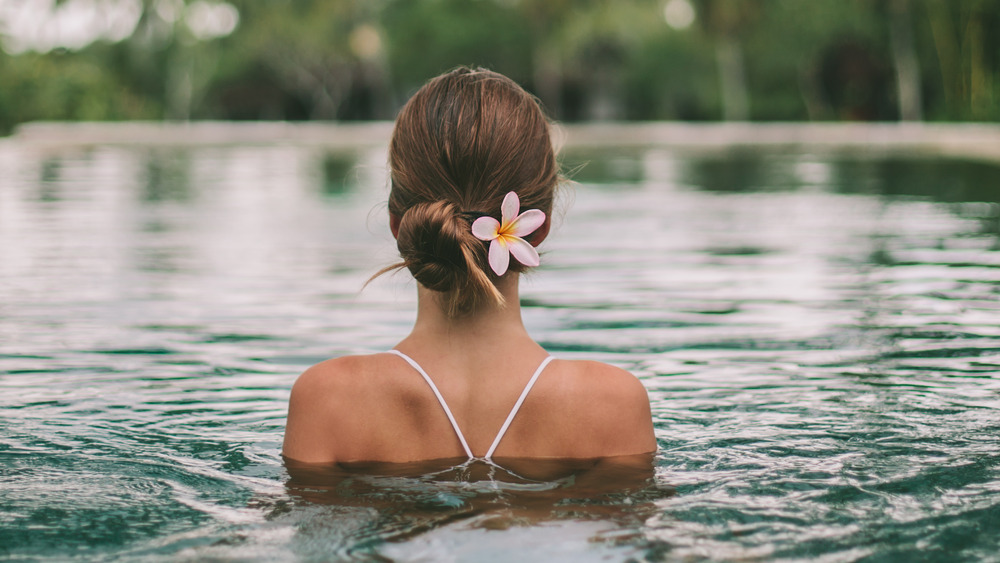What Really Happens When You Swim After Eating
Parents have warned children that swimming — be it in an actual pool, an inflatable pool, or at the beach — after a meal can cause various problems, including cramps and drowning. Moms even advised kids to wait at least several minutes to an hour before diving into the water to let their food digest better. But does this myth have any truth to it?
"When I was growing up, I remember my mother telling me, you know, not to go in the pool until it was 30 to 60 minutes after I had my last meal," Dr. Michael Boniface, a Florida-based emergency medicine physician, told Mayo Clinic. "The old feeling was that, after you eat, some of the blood may be diverted to your gut so that you can digest, diverting the bloodstream away from your arms and legs. And you may get tired or fatigued, and be more likely to drown." The medical expert also shared that there is "no scientific basis" to that belief, although minor stomach cramps may happen. Still, it won't lead to any serious medical problems.
Swimming after eating is perfectly fine
The fear of drowning while swimming after eating a meal started in 1908. A Boy Scout handbook advised children to wait at least 90 minutes before enjoying the water (via Dignity Health). The source of the myth is still unknown to this day.
As for muscle cramping, swimming is often not the cause, as cramping because of low blood supply is usually due to underlying health problems (via Live Science). People who swim every day, such as athletes, usually have hours and hours of practice, and some even have snacks or meals in between swimming sessions. When engaging in any form of exercise, eating a well-balanced diet is essential. Some swimmers eat before a morning dip, especially if the duration of the swim is 60 minutes or more (via BBC GoodFood). The American Red Cross also conducted a study about the old wives' tale and found no evidence that swimming after eating can cause harm to individuals. In fact, there's no record of anybody drowning while swimming after consuming a meal. Therefore, you can completely disregard this myth the next time you head out for a swim.

